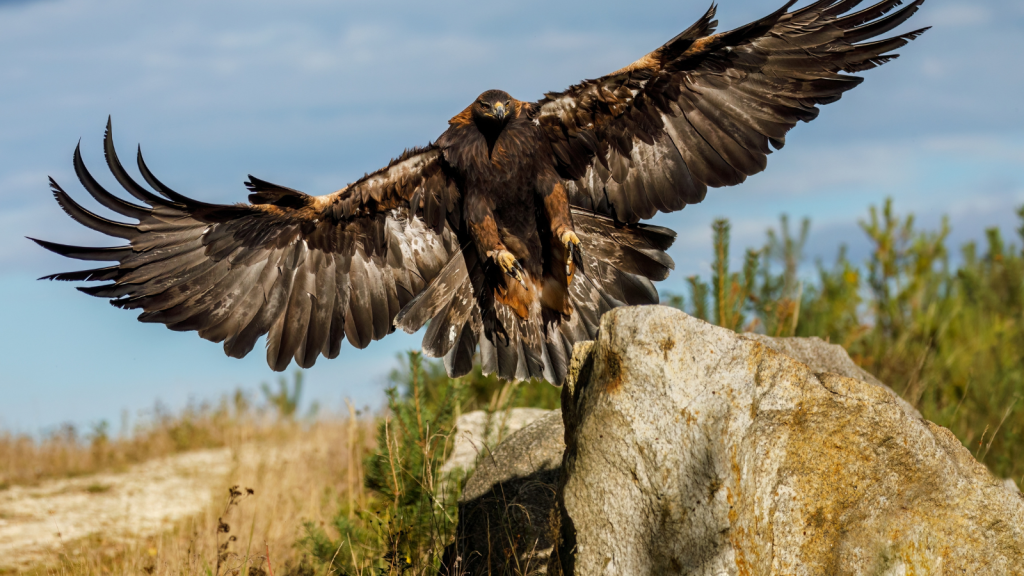The Rocky Mountains are a rugged and untamed wilderness, home to some of North America’s most formidable predators. These towering peaks and sprawling forests create a challenging environment where only the fittest survive. Among the cliffs, valleys, and alpine meadows live creatures perfectly adapted to hunt and thrive in this unforgiving terrain. From stealthy stalkers to powerful ambush predators, each animal contributes to the dynamic food chain of the Rockies. Here are 15 fierce predators that call the Rocky Mountains home.
1. Mountain Lion
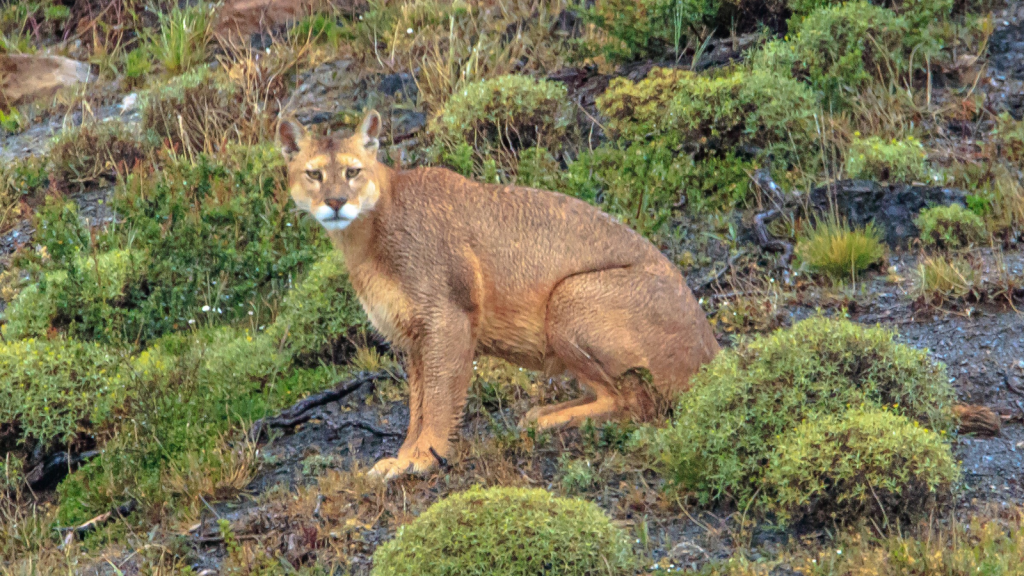
Also known as cougars or pumas, mountain lions are apex predators in the Rockies. They rely on stealth, strength, and powerful hind legs to ambush deer, elk, and smaller mammals. Preferring to hunt at dawn or dusk, these solitary cats can leap over 15 feet to catch their prey. Once caught, mountain lions use their strong jaws to deliver a swift, precise kill.
2. Grey Wolf
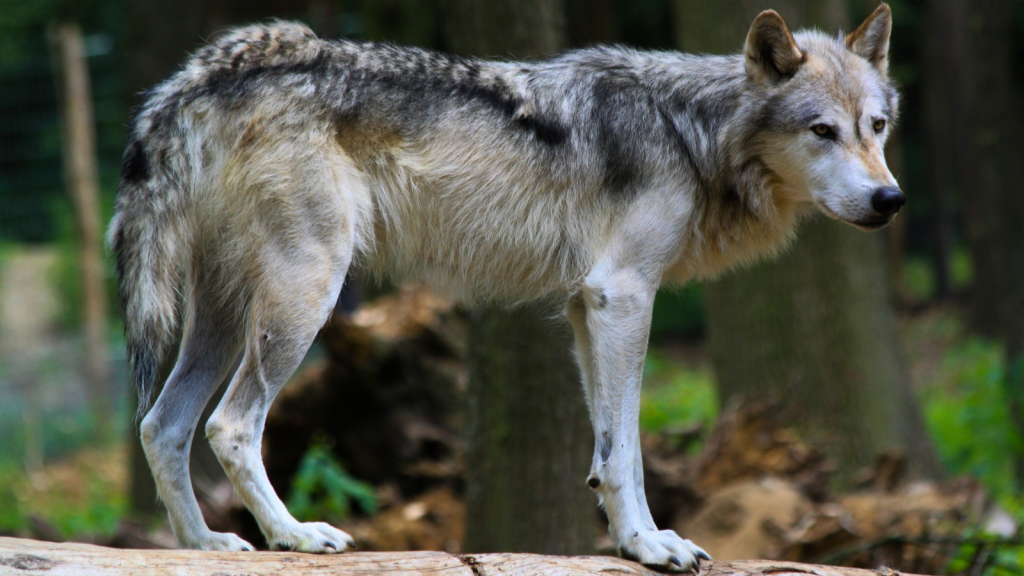
Grey wolves are highly intelligent hunters that thrive in the Rockies’ vast wilderness. Living in packs, they work together to take down large prey such as elk, deer, and bison. Their endurance and teamwork allow them to pursue prey over long distances until it is exhausted. Wolves are an iconic symbol of the Rocky Mountains, embodying both power and cooperation.
3. Grizzly Bear
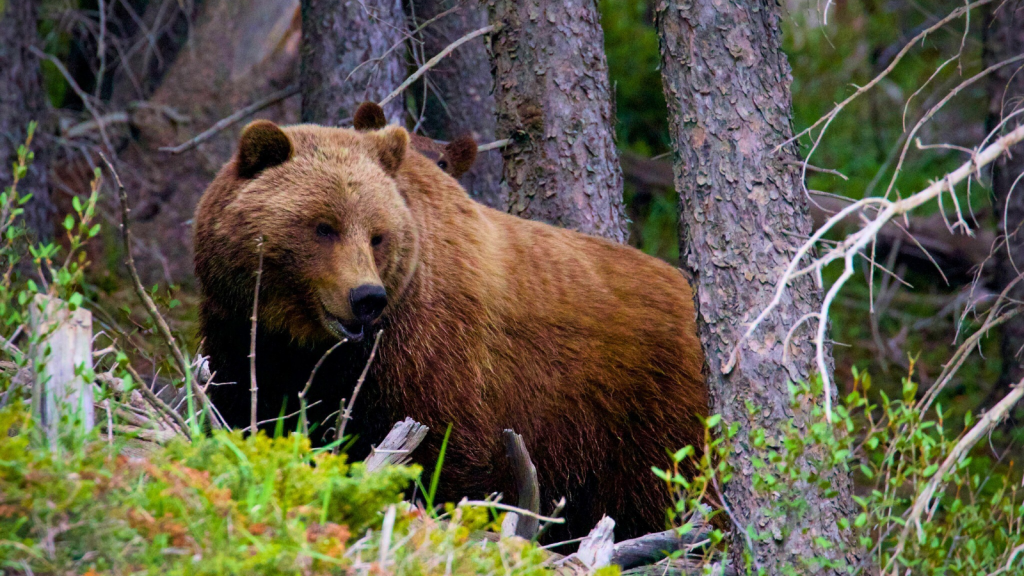
Grizzly bears are one of the most fearsome predators in the Rockies, capable of overpowering almost any animal. While they are omnivores, their diet includes elk calves, fish, and small mammals. These massive bears can weigh up to 600 pounds and run at speeds of up to 35 mph. Despite their size, grizzlies are agile and can climb trees or chase down prey when necessary.
4. American Badger
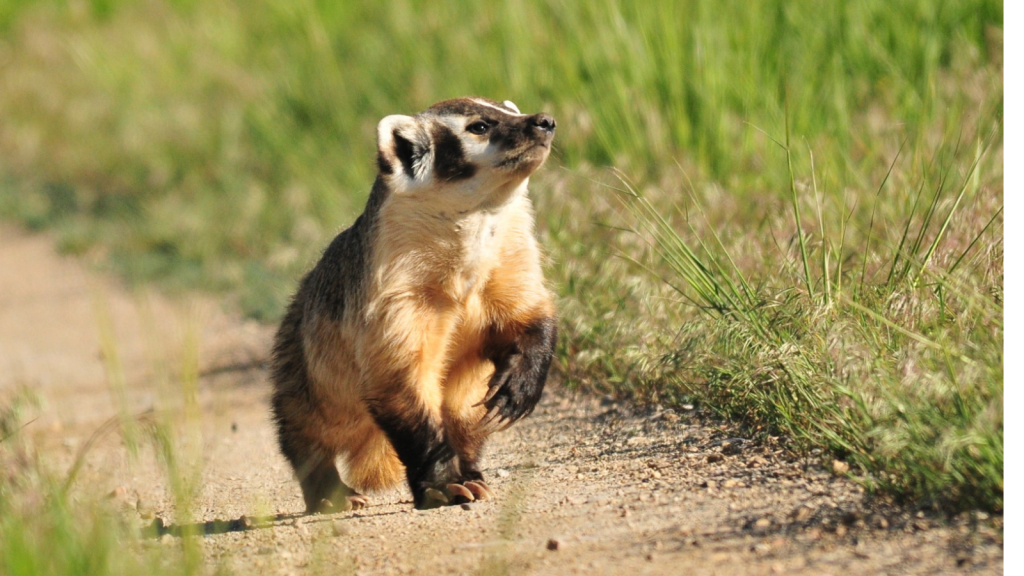
The American badger is a fearless predator that specializes in digging out its prey. These compact mammals use their strong claws and muscular bodies to unearth rodents like ground squirrels and prairie dogs. Badgers are known for their persistence and will pursue prey into underground burrows. They are solitary hunters, often active during the twilight hours.
5. Bald Eagle
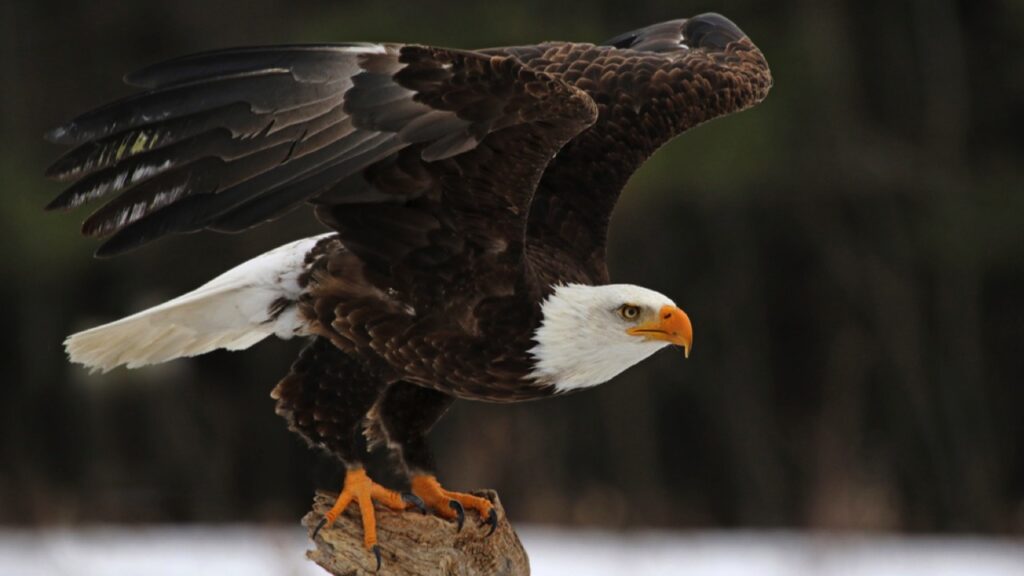
Bald eagles are powerful raptors frequently seen soaring above the Rocky Mountains. They hunt fish, waterfowl, and small mammals using their razor-sharp talons and excellent eyesight. These birds are skilled opportunists and will scavenge carrion when available. Nesting along rivers and lakes, bald eagles are a majestic yet fierce presence in the Rockies.
6. Coyote
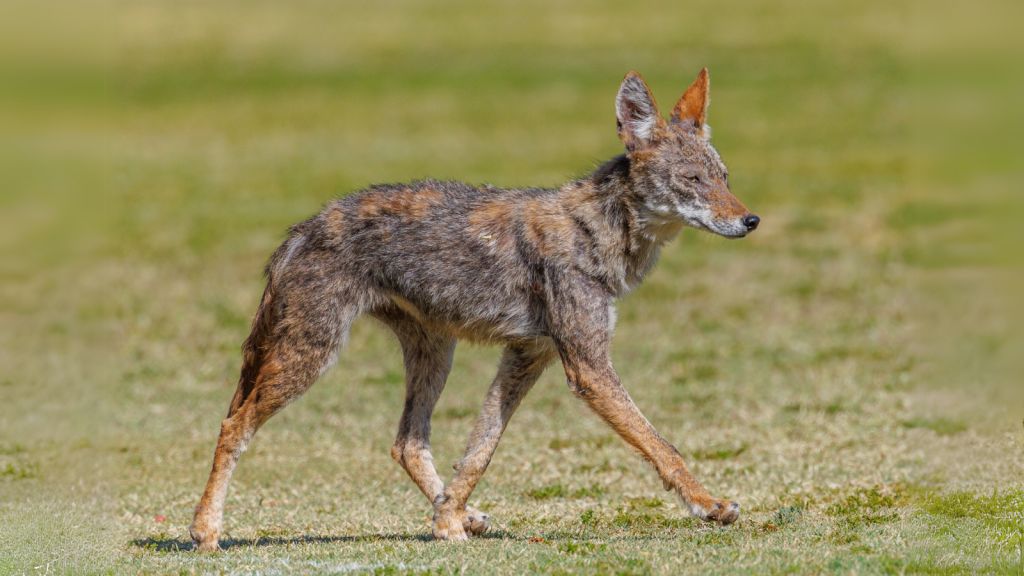
Coyotes are adaptable predators found throughout the Rocky Mountains. They hunt rodents, rabbits, and birds, often scavenging for leftovers from larger predators. Coyotes can hunt alone or in small groups, depending on the size of their prey. Their cunning nature and ability to adapt to changing environments have made them one of the most successful predators in North America.
7. Black Bear
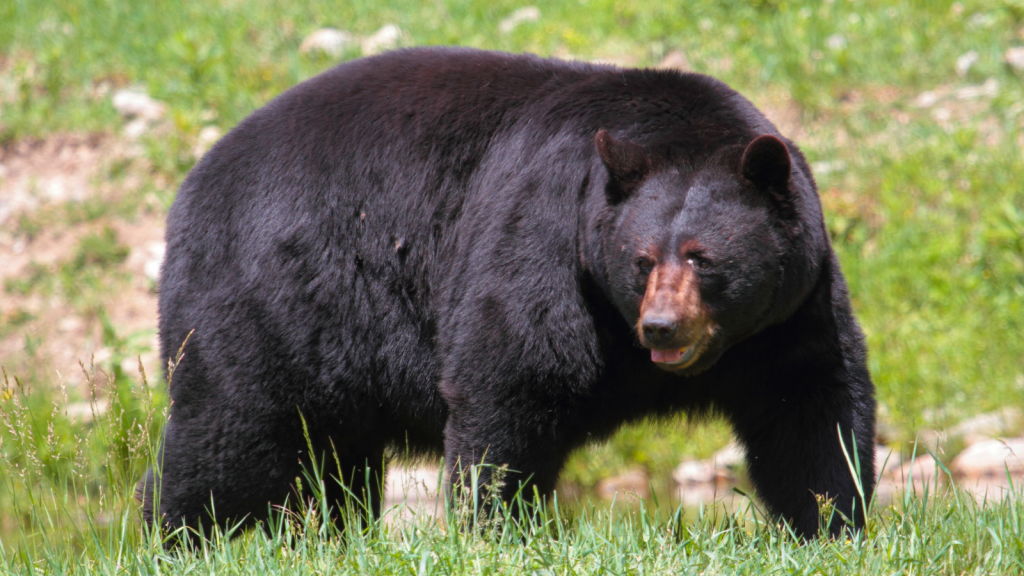
Though less aggressive than their grizzly relatives, black bears are still formidable predators. They hunt small mammals, fish, and insects, relying on their keen sense of smell to locate prey. Black bears are excellent climbers, often raiding bird nests or catching fish in mountain streams. Their diet is diverse, allowing them to thrive in the Rockies’ varied habitats.
8. Golden Eagle
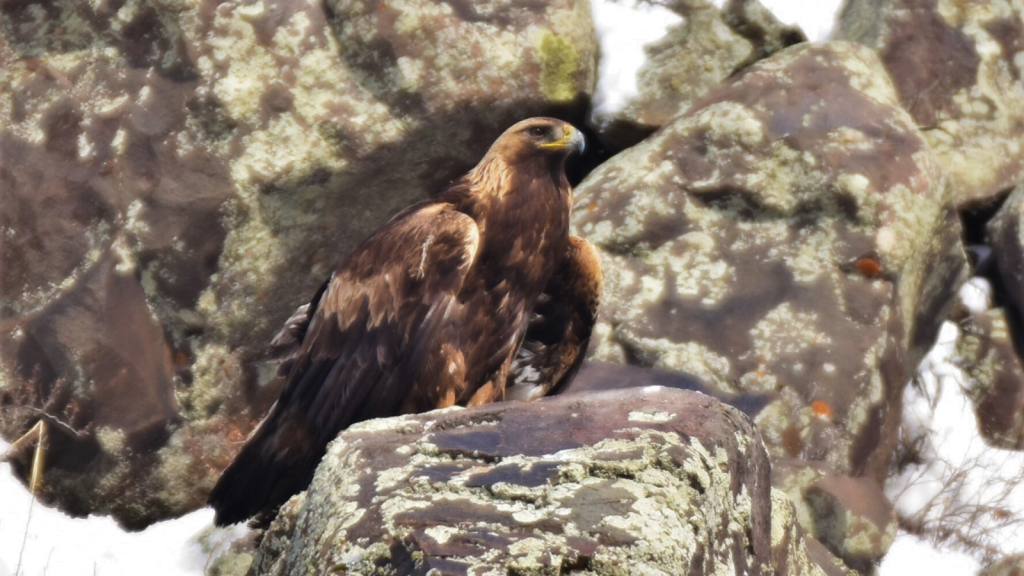
Golden eagles are extraordinary hunters, capable of taking down prey as large as young deer. Using their sharp talons and incredible speed, they target marmots, rabbits, and other small mammals. Golden eagles often hunt from high vantage points, diving at speeds of up to 150 mph. Their strength and precision make them one of the Rockies’ top aerial predators.
9. Wolverine
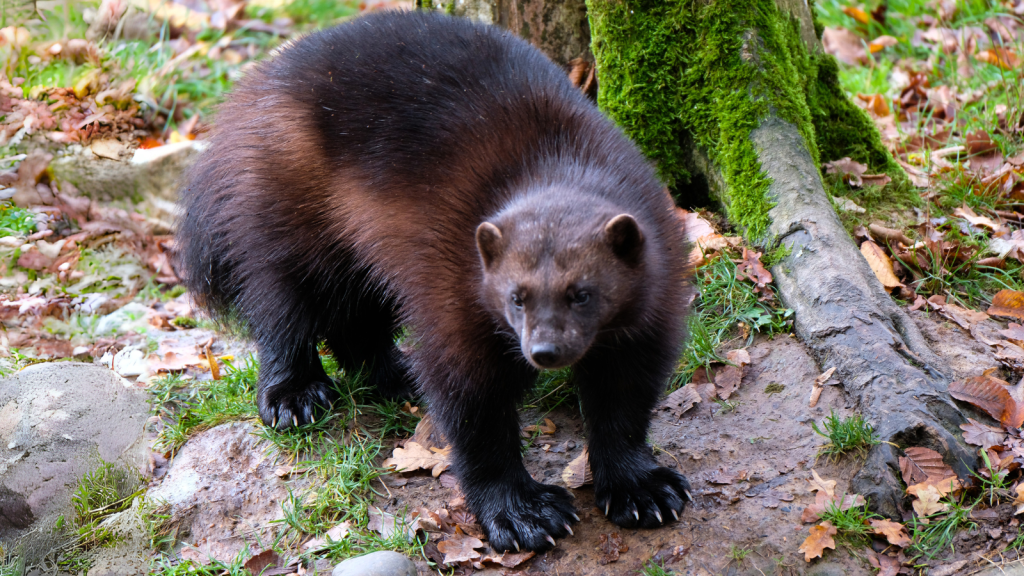
Wolverines are small but incredibly fierce predators, known for their strength and tenacity. These solitary hunters feed on rodents, birds, and carrion, often scavenging kills from larger predators. Wolverines are well-adapted to the Rockies’ harsh winters, with thick fur and large paws for traversing snow. Despite their size, they are fearless and can defend themselves against much larger animals.
10. Lynx
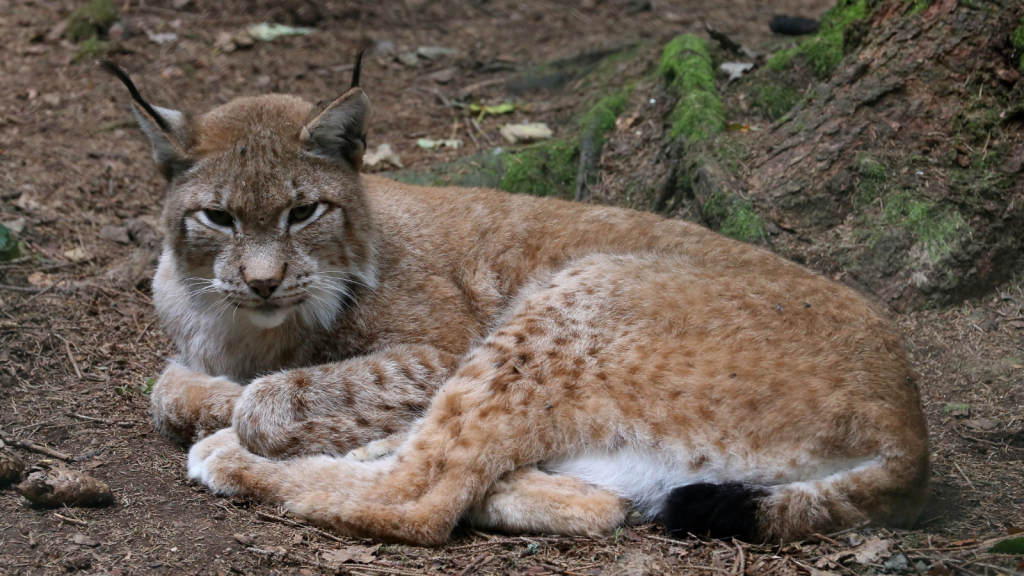
The elusive lynx is a masterful predator that hunts snowshoe hares, its primary food source. With large, padded paws that act like snowshoes, lynxes can move silently across snowy terrain. They are stealthy stalkers, relying on their sharp vision and hearing to detect prey. These solitary cats are rarely seen, adding to their mysterious reputation.
11. Peregrine Falcon
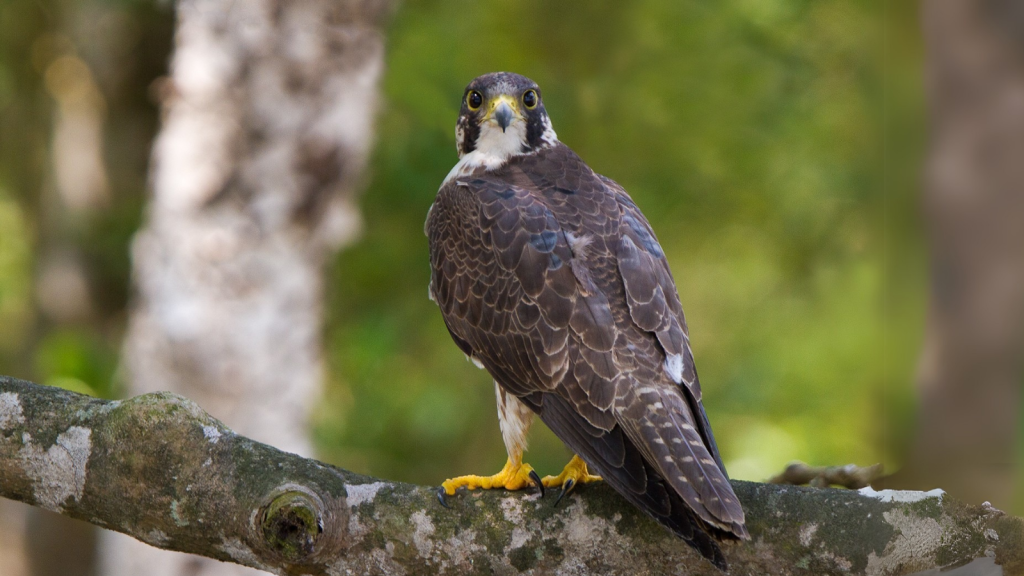
The peregrine falcon is the fastest bird in the world, capable of diving at speeds of over 240 mph. In the Rocky Mountains, it preys on birds like ducks and pigeons, striking them mid-flight. Peregrine falcons nest on cliffs, giving them a strategic vantage point for spotting prey. Their speed and agility make them unmatched aerial predators.
12. Striped Skunk
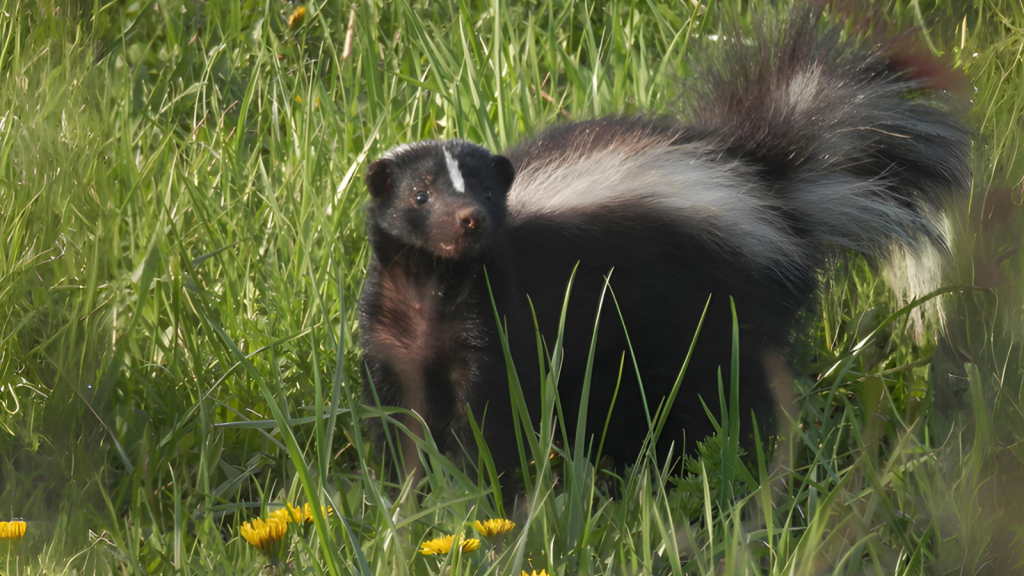
While not a large predator, the striped skunk is an effective hunter of insects, small rodents, and eggs. Skunks are nocturnal foragers, using their sharp claws to dig out prey. If threatened, they defend themselves with their infamous spray, deterring even the most determined predators. Their adaptability allows them to thrive in a variety of mountain habitats.
13. Elk Bugling Spider
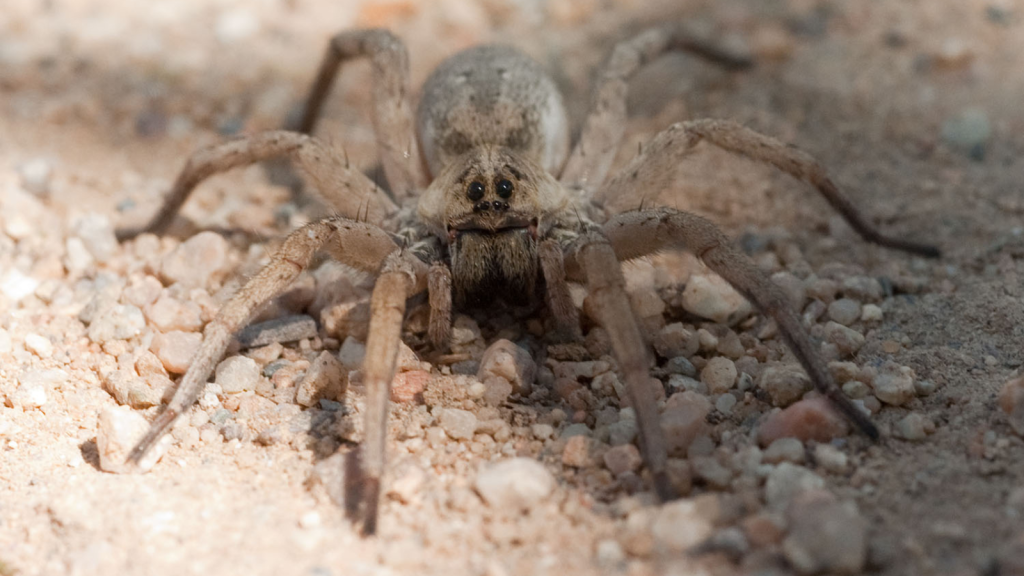
Though small and often overlooked, spiders like the elk bugling spider are predatory masters of the Rockies. They weave intricate webs to capture insects and sometimes even small vertebrates. Their venom is used to subdue prey quickly, turning the spider into an efficient hunter. Despite their size, these arachnids play an essential role in controlling insect populations.
14. Northern Goshawk
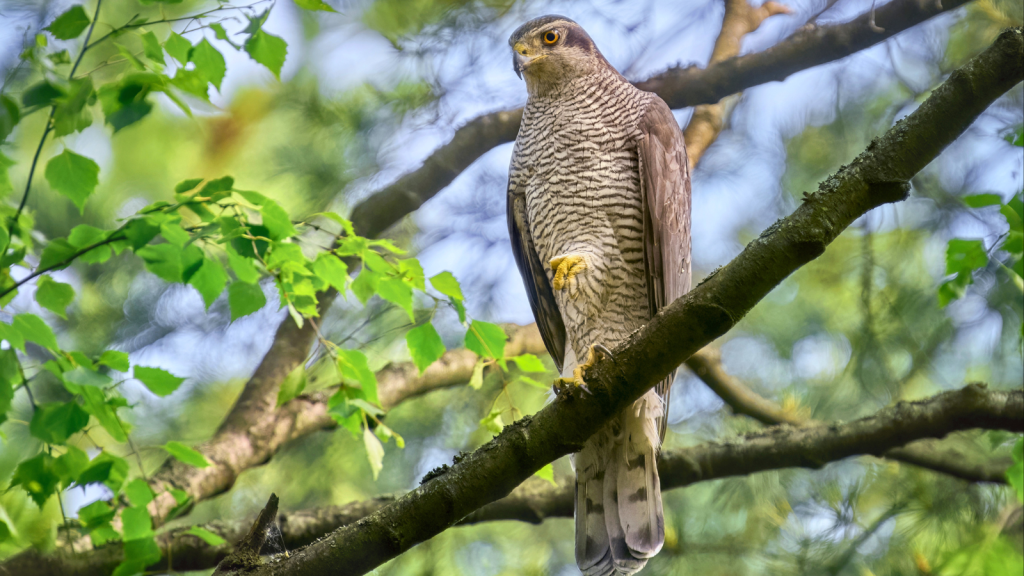
The northern goshawk is a powerful bird of prey found in the Rocky Mountains’ forests. It hunts medium-sized birds and mammals, using its agility to navigate dense woods. Goshawks are highly territorial and will aggressively defend their hunting grounds. Their fierce hunting style and keen eyesight make them formidable predators.
15. Bullsnake
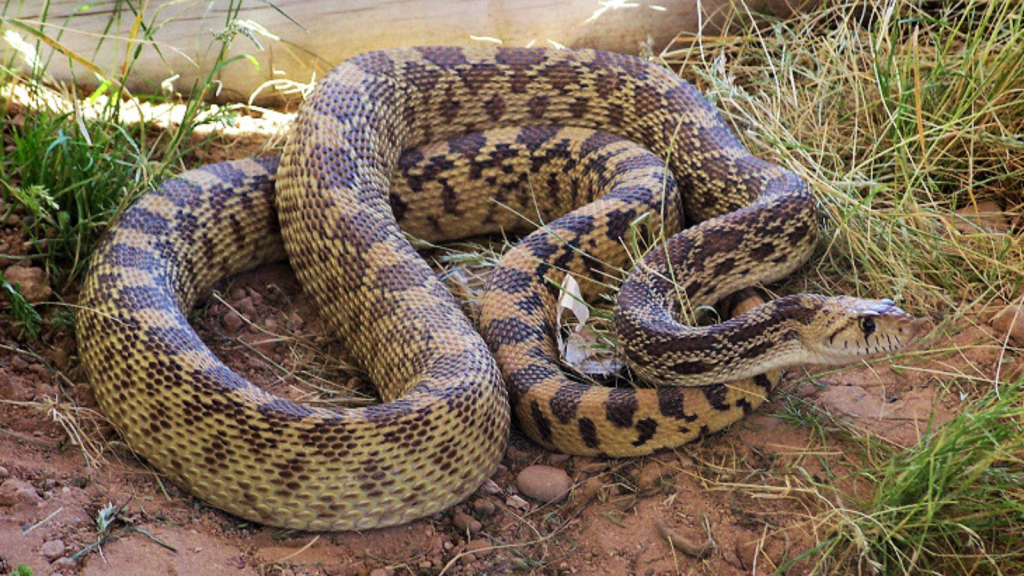
The bullsnake is one of the largest non-venomous snakes in the Rockies, preying on rodents, birds, and eggs. It uses constriction to subdue its prey, wrapping its muscular body around its target. Bullsnakes are excellent climbers and often raid bird nests for eggs or chicks. Despite their intimidating size, they play a critical role in controlling rodent populations.
15 Facts About the Honey Badger, the Fiercest Animal in Africa

The honey badger, a small but mighty creature, roams the African wilderness with a fearless attitude that’s earned it quite a reputation. These tenacious animals have captured the imagination of wildlife enthusiasts and casual observers alike. Despite their name, honey badgers aren’t closely related to European badgers and are more akin to weasels and otters. Their tough-as-nails approach to life and remarkable abilities have made them the stuff of legend. Let’s explore some fascinating facts about these extraordinary creatures that prove why they’re considered Africa’s fiercest animals.
Read More: 15 Facts About the Honey Badger, the Fiercest Animal in Africa
10 Desert Predators With Unique Hunting Adaptations

The harsh desert environment has shaped some of the most remarkable hunters on Earth. These animals have evolved incredible ways to survive and thrive in a world of extreme heat and scarcity. From silent stalkers to venomous ambush experts, desert predators are masters of adaptation. Their hunting techniques are as varied as they are fascinating, each perfectly suited to the challenges of their arid homes. Join us as we explore ten of these amazing creatures and the special tricks they use to catch their prey.

